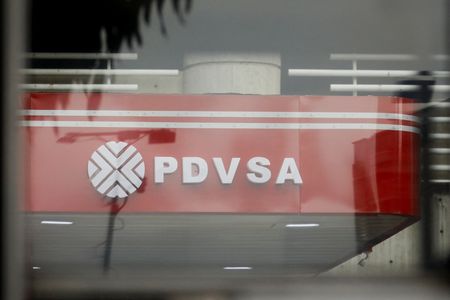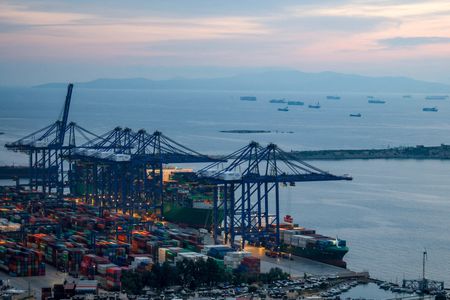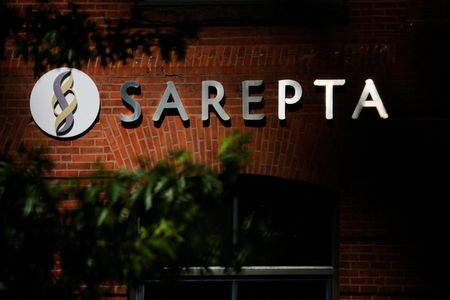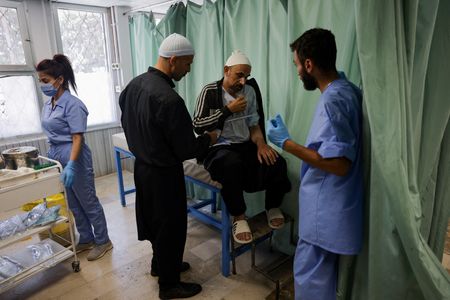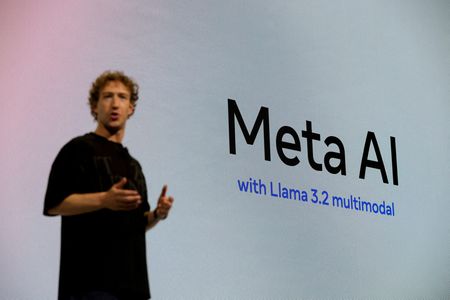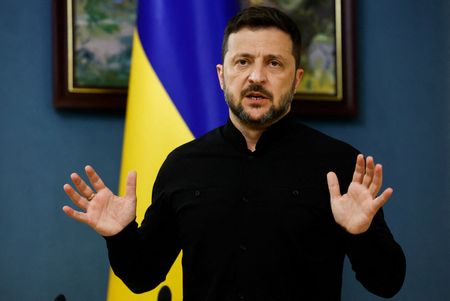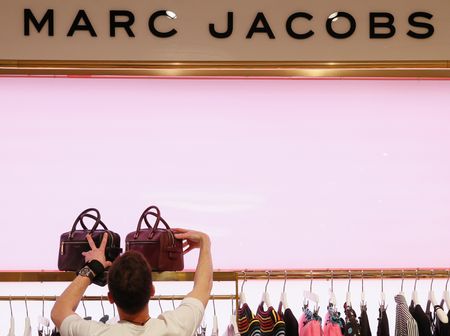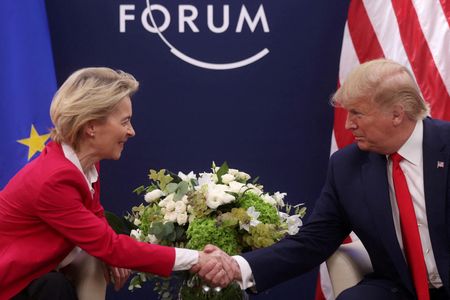By Marianna Parraga, Matt Spetalnick and Timothy Gardner
HOUSTON/WASHINGTON (Reuters) -The United States is preparing to grant new authorizations to key partners of Venezuela’s state-run PDVSA, starting with Chevron, to allow them to operate with limitations in the sanctioned OPEC nation and swap oil, five sources close to the matter said on Thursday.
If granted, the authorizations to the U.S. oil major, and possibly also to PDVSA’s European partners, would mark a policy shift from a pressure strategy Washington adopted this year on Venezuela’s energy industry, under U.S. sanctions since 2019.
President Donald Trump’s administration might now allow the energy companies to pay oilfield contractors and make necessary imports to secure operational continuity.
Some imports could be swapped for Venezuelan oil, as authorized in previous licenses, three of the sources said.
A senior State Department official said in a statement they could not speak about any specific licenses to PDVSA’s partners, but added the United States would not allow President Nicolas Maduro’s government to profit from the sale of oil.
A source in touch with U.S. and Venezuelan officials said it was difficult to understand how Maduro’s government would not benefit from cargoes Chevron can sell to the U.S., and later on Thursday Maduro hailed work done to keep Chevron in the country.
“There are already working groups so that Chevron can re-incorporate its functions,” Maduro told an interview with Telesur, adding that Chevron’s top leadership had already been informed of licenses so it can keep operating in Venezuela.
Chevron shares touched $155.93 on Thursday, their highest level since April 3, according to LSEG data.
“Chevron conducts its business globally in compliance with laws and regulations applicable to its business, as well as the sanctions frameworks provided for by the U.S. government, including in Venezuela,” a company spokesperson said.
The move to ease some restrictions on Venezuela’s oil sector follows a prisoner swap this month in which Maduro released 10 American detainees while accepting the return of more than 200 Venezuelans who had been deported from the U.S. and held in an El Salvador prison.
Relations between the two countries have been tense for years, and the Trump administration has publicly supported opposition leaders who say their candidate won last year’s election, not Maduro.
Trump in February announced the cancellation of a handful of energy licenses in Venezuela, including Chevron’s, and gave until late May to wind down all transactions.
The move left all operations in oil and gas joint ventures with Chevron and other partners in PDVSA’s hands, but the companies were authorized to preserve their stakes and output remained almost unchanged.
The U.S. State Department, which in May blocked a move by special presidential envoy Richard Grenell to extend the licenses, is this time imposing conditions on any authorization modifications, so that no cash reaches Maduro’s coffers, the three sources said.
In the past, U.S. officials have promised no money would reach Maduro from oil proceeds despite licenses. But it did because PDVSA demands tax and royalties to be paid before granting exports permits. Even if parties agree to oil swaps, those arrangements save PDVSA, and ultimately Maduro’s government, millions of dollars per year in imports.
Secretary of State Marco Rubio is not expected this time to ban the authorizations, but is negotiating their scope, they added.
It was not immediately clear if the terms of the license that could be granted to Chevron would be reproduced for other foreign companies in Venezuela, including Italy’s Eni and Spain’s Repsol, which have been asking the U.S. to allow them to swap fuel supplies for Venezuelan oil.
The authorizations might remain private, one of the sources said.
The U.S. Treasury Department’s Office of Foreign Assets Control and PDVSA did not immediately respond to requests for comment.
WHERE WILL THE OIL GO?
Following the cancellation of Chevron’s license earlier this year, Trump announced the imposition of secondary tariffs on buyers of Venezuelan oil.
But the measure, expected to severely hit Venezuela’s main crude buyer China, has not been enforced, allowing the South American country to divert to Asia crude grades that were previously sold to U.S. and European refiners through PDVSA’s joint-venture partners.
The reshuffle, which has maintained Venezuela’s oil output and exports close to the levels they were at before the license cancellations, has been criticized by politicians in Washington and was discussed as part of talks for the new authorizations, the sources said.
During former U.S. President Joe Biden’s administration, targeted licenses to PDVSA’s partners allowed Western refiners to regain access to Venezuelan supplies, but they also granted a stable source of cash to Maduro’s administration as the companies were required by Venezuela to pay royalties and taxes.
(Reporting by Marianna Parraga in Houston and Timothy Gardner and Matt Spetalnick in Washington and Deisy Buitrago in Caracas; additional reporting by Sheila Dang, Rodrigo Campos and Andrea Shalal; Editing by Marguerita Choy)

